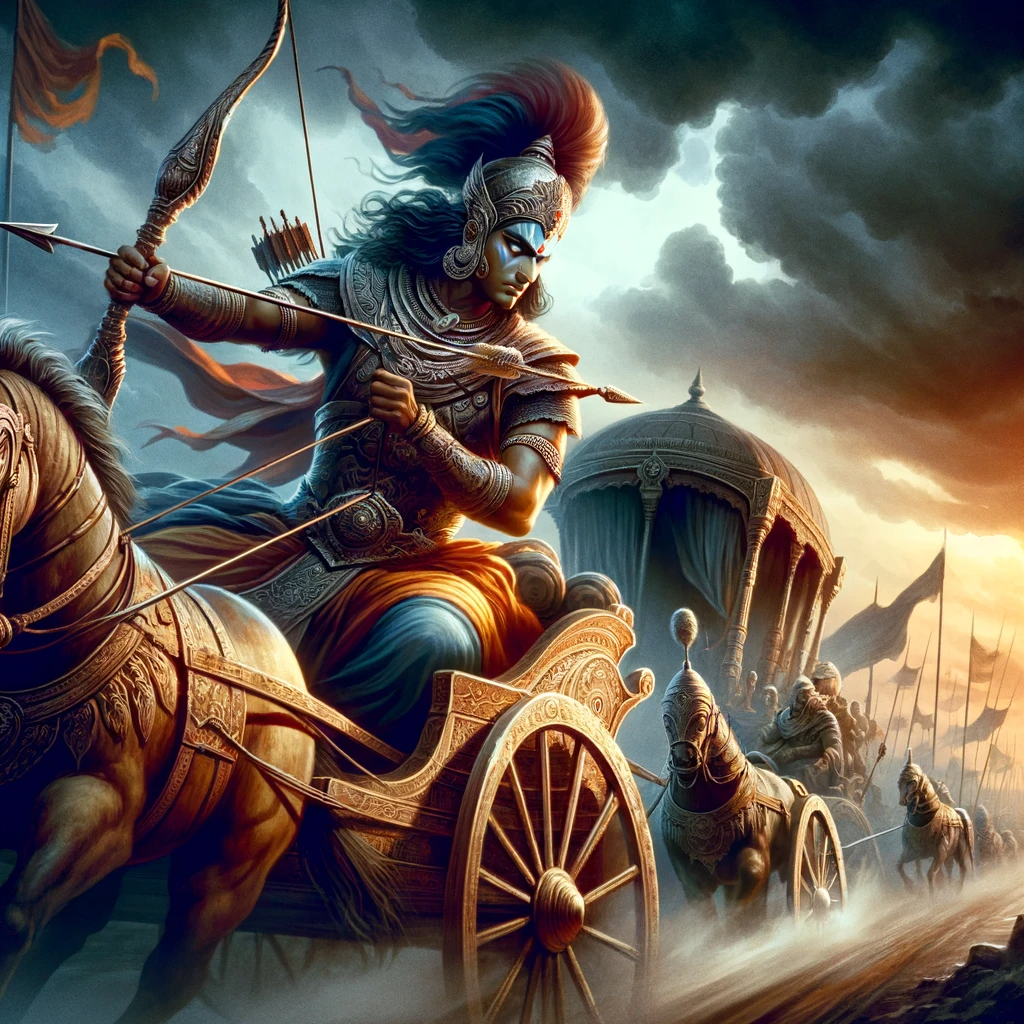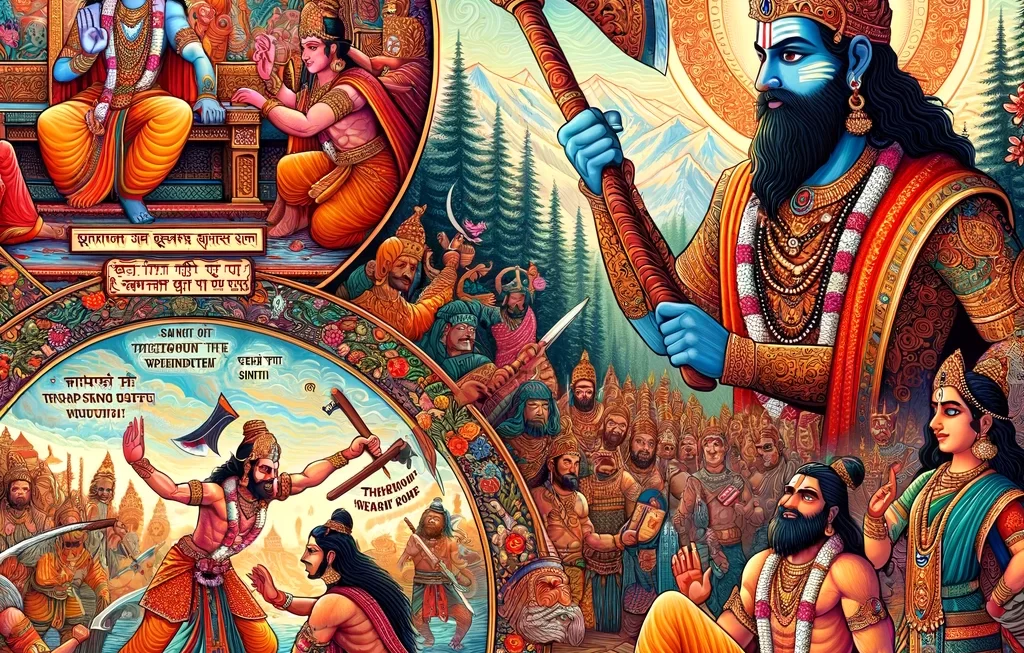The Mahabharata, a timeless Indian epic, offers a kaleidoscope of characters, each embodying complex layers of morality and duty. Among them, Karna stands out as a figure of intrigue and admiration. His story is not just about the challenges of caste or allegiance to a friend; it’s about the relentless pursuit of immortal fame.
Ambition and Training Under Drona:

Karna’s initial training under Drona was not restricted by his caste but by his unyielding ambition and desire to surpass Arjuna. His yearning to master the Brahmastra was rooted in his quest to etch his name as the greatest archer of all time. This relentless pursuit of excellence, driven by a deep-seated sense of rivalry with Arjuna, echoes the theme that “men rise and fall like winter and wheat but these names will never die.” Karna’s decision to leave Drona signifies a pivotal moment where his pursuit of eternal glory begins to shape his destiny.
Deceit and Parashurama’s Curse:

Karna’s determination to achieve unparalleled mastery in warfare led him to Parashurama, whom he deceived to gain knowledge forbidden to him. This act of deception, a testament to his relentless drive for greatness, ultimately led to Parashurama’s curse, which would later seal his fate in the war. This episode is a poignant reflection of the fleeting nature of success and the heavy price of immortal fame.
Navigating Caste Dynamics:
The Mahabharata’s portrayal of caste is multifaceted. While Karna faced challenges due to his upbringing, the epic also presents characters like Sanjaya, a Suta who commands respect and authority. Karna’s journey, thus, transcends the simplistic caste narrative, focusing instead on his personal struggle for acknowledgment and respect. His story is a testament to the pursuit of a name that would resonate through ages, underlining the enduring nature of legacy over the transient social order.
Allegiance and Moral Dilemmas:
Karna’s allegiance to Duryodhana, more than a mere bond of friendship, was a strategic alliance that offered him the recognition he sought. By crowning him the King of Anga, Duryodhana provided Karna a platform to display his valor and skill. This alliance, however, embroiled Karna in a moral quandary, as he found himself supporting a cause often at odds with dharma (righteousness). His loyalty to Duryodhana juxtaposed with his personal ambition illustrates the complex interplay between duty, morality, and the undying pursuit of a name that transcends time.
The Pursuit of Immortal Fame:
The essence of Karna’s life story is encapsulated in the pursuit of eternal glory, aligning with the profound quote “men rise and fall like winter and wheat but these names will never die.” His life was a continuous struggle to break free from societal constraints and personal limitations, striving for a legacy that would outlive the ephemeral nature of human existence. His extraordinary skills, complex moral decisions, and eventual tragic end contribute to the undying legacy of Karna, a name forever etched in the annals of time.
Karna’s narrative in the Mahabharata is thus a compelling exploration of human ambition, societal constraints, and the pursuit of eternal glory. His story, marked by personal conflicts, ethical dilemmas, and a relentless pursuit of recognition, beautifully illustrates the timeless nature of names and legacies that withstand the relentless march of time.




